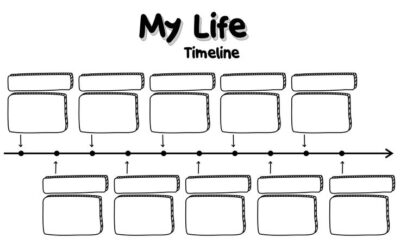Lifespan Integration Therapy: A Comprehensive Guide to Timeline-Based Healing An in-depth exploration of Lifespan Integration therapy, its principles, protocols, and effectiveness for trauma healing. What is Lifespan Integration Therapy? Lifespan Integration (LI) is an innovative therapeutic approach that has emerged as a powerful modality for healing trauma and promoting neural integration. Developed by Peggy Pace in the early 2000s, LI has evolved significantly through collaborative refinement into a...
Lifespan Integration Therapy in Alabama: Timeline-Based Healing for Trauma and Life Transitions

Understanding Lifespan Integration in the Heart of Alabama
Lifespan Integration represents a revolutionary approach to trauma healing that has found particular resonance in Alabama communities. At Taproot Therapy Collective in Hoover, Alabama, our certified Lifespan Integration therapists provide this powerful healing modality to clients throughout Birmingham and surrounding areas. Whether you’re seeking trauma therapy, anxiety treatment, depression counseling, or help with other emotional challenges, our experienced professionals can help you connect the separate scenes of your life into a cohesive, healing narrative.
Lifespan Integration works on a neurobiological level to promote neural integration and rewire neural pathways associated with trauma responses. The therapy is grounded in contemporary understanding of interpersonal neurobiology, memory reconsolidation, and attachment theory. During LI sessions, repetitive visualization of your timeline helps connect neural networks across different parts of your brain, allowing for more adaptive responses to triggers that previously caused distress.
Developed by Peggy Pace in 2002, Lifespan Integration emerged from her extensive experience as a therapist and her studies in neuroscience, attachment theory, and body-based therapies. She observed that many of her clients seemed to be “stuck” in patterns of emotional and behavioral reactivity that were rooted in early, pre-verbal experiences. This gentle, body-based therapeutic method aims to heal without re-traumatizing, founded on the understanding that the mind-body system is equipped with a natural ability to heal itself, given the right conditions and support.
The Alabama Context: How Lifespan Integration Serves Our Communities
Alabama’s unique cultural landscape creates specific therapeutic considerations that make Lifespan Integration particularly valuable. Our state’s rich history includes both beautiful traditions and difficult chapters that continue to impact families across generations. The effects of historical trauma, economic transitions, natural disasters, and cultural change create complex therapeutic needs that benefit from LI’s comprehensive approach to healing across the entire lifespan.
Southern culture places strong emphasis on family connections and storytelling traditions that align naturally with Lifespan Integration’s narrative approach to healing. The therapy honors the importance of family history while providing tools to break cycles of trauma that may have been passed down through generations. Alabama families often carry stories of resilience alongside experiences of hardship, making LI’s strength-based approach particularly appropriate for our communities.
Rural and urban Alabama communities alike face unique stressors that can benefit from Lifespan Integration’s holistic approach. From agricultural communities dealing with economic uncertainty to urban areas navigating rapid change, Alabama residents need therapeutic approaches that address both individual trauma and the broader environmental factors that shape their experiences.
Our comprehensive therapeutic approaches at Taproot Therapy Collective recognize these cultural and regional factors while providing evidence-based treatment that honors both universal healing principles and local community values.
Who Can Benefit from Lifespan Integration in Alabama
Lifespan Integration therapy proves particularly effective for Alabama residents dealing with various forms of trauma and life challenges. Complex trauma survivors, including those who experienced childhood abuse, neglect, or family dysfunction, often find that LI provides the gentle yet thorough healing they need. The therapy’s non-retraumatizing approach makes it accessible for individuals who may have found other trauma therapies overwhelming or destabilizing.
Veterans and military families, who represent a significant population across Alabama, can benefit greatly from Lifespan Integration’s approach to processing combat trauma, deployment stress, and reintegration challenges. Military culture’s emphasis on resilience and service aligns well with LI’s strength-based perspective, while the therapy’s gentle approach respects the unique needs of those who have served.
First responders throughout Alabama, including firefighters, police officers, paramedics, and healthcare workers, face ongoing exposure to traumatic situations that can accumulate over time. Lifespan Integration helps these essential workers process cumulative stress while maintaining their capacity to serve their communities effectively.
Individuals dealing with major life transitions find particular value in Lifespan Integration’s timeline approach. Whether navigating divorce, career changes, loss of loved ones, or geographic moves, LI helps integrate these experiences into a coherent life narrative that supports continued growth and adaptation.
Alabama’s agricultural communities face unique stressors related to weather, economic uncertainty, and changing farming practices. Farmers and their families often carry generational trauma related to loss of land, economic hardship, and environmental challenges. Lifespan Integration’s approach to healing across generations makes it particularly suited for addressing these deeply rooted patterns.
How Lifespan Integration Works: The Timeline Approach
The foundation of Lifespan Integration lies in its timeline approach, which helps clients integrate fragmented memories and experiences into a coherent narrative. During a Lifespan Integration session at Taproot Therapy Collective, your therapist will guide you through a process that includes assessment and preparation, creating a safe therapeutic environment and identifying therapy goals.
Timeline creation involves developing a chronological list of significant memories from throughout your life, working collaboratively with your therapist to identify key experiences that have shaped your development. This process honors both positive and challenging experiences, recognizing that healing involves integrating all aspects of your life story.
Protocol selection allows your therapist to choose the most appropriate LI protocol based on your specific needs and therapeutic goals. Different protocols address various types of trauma and mental health concerns, ensuring that your treatment is tailored to your unique situation and circumstances.
Timeline repetition involves guided visualization through your timeline multiple times to promote neural integration. This repetitive process helps your brain create new neural pathways that connect previously isolated memories and experiences, leading to improved emotional regulation and psychological integration.
Integration and processing focus on making connections between past experiences and current patterns, helping you understand how your history influences your present-day life while developing new, more adaptive responses to challenging situations.
The Basic Lifespan Integration Protocol serves as the foundational technique used in LI therapy. It involves guiding the client through their timeline, from birth to the present moment, while applying specific prompts and techniques to facilitate integration and healing.
Specific Lifespan Integration Protocols for Alabama Communities
The PTSD Protocol represents a specific adaptation of the basic LI protocol, designed for clients with post-traumatic stress disorder. This protocol aims to process and integrate the traumatic memory that is driving the PTSD symptoms, using a focused, intensive approach that has proven particularly effective for Alabama veterans and first responders.
Preparation and resourcing establish safety, trust, and a strong therapeutic alliance while helping clients identify and strengthen internal and external resources that can support them through the process. Accessing the traumatic memory involves guiding the client to access the specific traumatic memory being targeted, using techniques such as sensory cues, imagery, or body sensation.
The Birth to Present Protocol represents a comprehensive LI technique that aims to promote integration and coherence across the entire lifespan. This protocol proves particularly valuable for Alabama clients dealing with complex developmental trauma or seeking to understand how their entire life story contributes to current challenges.
The Relationship Protocol focuses specifically on healing attachment wounds and improving interpersonal functioning. This approach proves especially valuable in Alabama’s relationship-oriented culture, where family and community connections play central roles in individual identity and wellbeing.
Processing and integrating stuck points involves looking for signs of activation or dysregulation that indicate unresolved relational traumas or attachment wounds. These stuck points are processed using specific techniques, such as imaginal dialogues, role-plays, or sensory-motor processing that honor both individual healing needs and cultural values around relationships.
Conditions Treated with Lifespan Integration in Alabama
Lifespan Integration therapy in Alabama effectively addresses trauma and PTSD, particularly complex trauma resulting from childhood abuse, neglect, or ongoing exposure to difficult circumstances. The therapy’s gentle approach makes it accessible for individuals who have found traditional exposure therapies too overwhelming or retraumatizing.
Anxiety and panic disorders often have roots in early experiences of threat, danger, or vulnerability that continue to influence present-day responses. Lifespan Integration helps resolve these underlying patterns while building self-regulation skills and updating attachment patterns that support greater emotional stability.
Depression and mood disorders frequently stem from early experiences of loss, neglect, or trauma that create lasting patterns of hopelessness and despair. LI helps alleviate depression by processing and integrating these early experiences while promoting greater self-worth, self-compassion, and self-efficacy through connection to more resourced states.
Dissociative disorders, including dissociative identity disorder, depersonalization, and dissociative amnesia, often result from severe early trauma that fragments the developing sense of self. Lifespan Integration’s approach to connecting fragmented aspects of experience proves particularly valuable for creating greater internal coherence and integration.
Substance abuse and addiction frequently mask underlying trauma and attachment wounds that drive self-medicating behaviors. When integrated with other evidence-based addiction treatments, Lifespan Integration addresses the root causes that often fuel addictive patterns while supporting the development of healthier coping strategies.
Grief and loss, whether related to death, divorce, job loss, or other significant life changes, can become complicated when they trigger unresolved losses from earlier in life. LI helps integrate these experiences within the broader context of the individual’s life story, supporting healthy grief processing and adaptation.
Our Certified Lifespan Integration Therapists in Alabama
At Taproot Therapy Collective, several of our therapists are specially trained and certified in Lifespan Integration therapy. They have completed extensive training through Lifespan Integration, LLC and continue to advance their skills through ongoing education and consultation with other LI practitioners.
Pamela Hayes offers a unique combination of Lifespan Integration, IFS therapy, and somatic approaches that address complex trauma at its roots rather than merely managing symptoms. Her work proves particularly valuable for Alabama residents with limited access to specialized care, as she provides teletherapy services throughout the state. Pamela’s expertise includes supporting individuals struggling with perfectionism, impostor syndrome, chronic pain, dysautonomia, MCAS and EDS, and Pure OCD.
Pamela’s integrative approach recognizes that trauma affects the whole person and requires comprehensive treatment that addresses both psychological and physiological aspects of healing. Her combination of Lifespan Integration with Internal Family Systems therapy proves particularly powerful for individuals dealing with complex internal conflicts and self-criticism.
Multiple therapists at Taproot integrate Lifespan Integration principles into their comprehensive treatment approaches, ensuring that clients can access this powerful modality whether they’re seeking individual therapy, family therapy, or specialized treatment for specific conditions. Our certified therapists bring extensive training in multiple modalities to provide comprehensive care for various mental health concerns.
The therapeutic relationship represents a crucial foundation for successful Lifespan Integration work. Our therapists prioritize building safety, trust, and attunement before beginning timeline work, ensuring that each client feels genuinely supported throughout their healing journey.
Accessing Lifespan Integration Throughout Alabama
Our Hoover location serves the entire Birmingham metropolitan area with specialized Lifespan Integration therapy. Clients from Mountain Brook, Homewood, Vestavia Hills, and surrounding areas can access our expert therapists for trauma healing and emotional integration in a convenient, supportive environment.
Through our secure teletherapy services, we provide Lifespan Integration therapy to clients throughout Alabama. Whether you’re in Huntsville, Montgomery, Mobile, Tuscaloosa, Auburn, Florence, or anywhere in the state, you can experience the healing benefits of this innovative approach from the comfort and privacy of your own home.
Teletherapy for Lifespan Integration maintains the same effectiveness as in-person sessions while providing greater accessibility for Alabama residents in rural areas or those with transportation challenges. Our secure, HIPAA-compliant platform ensures privacy and confidentiality while maintaining the therapeutic connection essential for successful LI work.
Alabama’s diverse geography creates unique access challenges that teletherapy helps address. From the mountains of North Alabama to the Gulf Coast, our statewide teletherapy services ensure that distance doesn’t prevent access to specialized trauma treatment.
The Science Behind Lifespan Integration: Neural Integration and Memory Reconsolidation
Understanding the neurobiological foundation of Lifespan Integration helps explain why this approach proves so effective for trauma healing. Modern neuroscience research demonstrates that trauma memories are often stored in fragmentary ways that keep them isolated from normal memory networks, contributing to ongoing symptoms and dysregulation.
Memory reconsolidation represents a natural process through which memories become temporarily labile when recalled, allowing for the integration of new information and the modification of emotional associations. Lifespan Integration harnesses this natural process by repeatedly moving through timeline memories in a therapeutic context, promoting the integration of previously fragmented experiences.
Neural integration occurs when different parts of the brain begin communicating more effectively, leading to improved emotional regulation, cognitive flexibility, and behavioral adaptation. The repetitive timeline process characteristic of LI promotes this neural integration by creating new pathways between memory networks.
Interpersonal neurobiology research shows that healing occurs within the context of attuned relationships that provide safety and support for nervous system regulation. The therapeutic relationship in Lifespan Integration provides this essential foundation for neural change and integration.
Our QEEG brain mapping services can provide objective measures of how Lifespan Integration affects brain function, helping track progress and guide treatment planning for optimal outcomes.
Integration with Other Therapeutic Approaches
Lifespan Integration works exceptionally well in combination with other evidence-based therapies offered at Taproot Therapy Collective. EMDR therapy and Lifespan Integration complement each other beautifully, with EMDR providing focused processing of specific traumatic memories while LI addresses broader patterns of integration across the lifespan.
Brainspotting and Lifespan Integration can be combined for particularly powerful trauma processing, with Brainspotting helping access subcortical brain regions where trauma is stored while LI provides the framework for integrating these experiences within the broader life narrative.
Somatic approaches enhance Lifespan Integration by addressing the body-based aspects of trauma that may arise during timeline work. The combination helps ensure that both cognitive and somatic aspects of healing are addressed comprehensively.
Internal Family Systems therapy provides valuable tools for working with different “parts” of the self that may emerge during Lifespan Integration work. This combination proves particularly powerful for addressing complex trauma and internal conflicts.
Family therapy approaches can incorporate Lifespan Integration principles to help families understand how individual healing connects to broader family patterns and generational transmission of trauma or resilience.
What to Expect in Lifespan Integration Sessions
Initial Assessment and Preparation begins every Lifespan Integration treatment at Taproot Therapy Collective. Your therapist will take time to understand your history, current concerns, and therapeutic goals while creating a safe environment that supports deep healing work. This preparation phase ensures that you feel ready and supported before beginning timeline work.
Resource Building involves identifying and strengthening internal and external resources that can support you through the healing process. This might include positive memories, supportive relationships, spiritual practices, or personal strengths that provide stability and comfort during challenging moments.
Timeline Development creates the foundation for LI work through collaborative development of your personal timeline. This process honors your unique life story while identifying key experiences that have shaped your development and continue to influence your current functioning.
Protocol Implementation involves the careful application of specific Lifespan Integration protocols based on your individual needs and therapeutic goals. Your therapist will guide you through the timeline process at a pace that feels safe and manageable, ensuring that healing occurs without overwhelming your system.
Integration and Processing help you understand how past experiences connect to current patterns while developing new, more adaptive responses to life challenges. This phase of treatment focuses on consolidating gains and building skills for ongoing growth and resilience.
Progress Monitoring ensures that treatment remains effective and responsive to your changing needs. Regular check-ins allow for adjustments to treatment approach and celebration of progress toward your therapeutic goals.
Session Duration and Treatment Planning
The number of sessions varies depending on your specific needs and goals. For single-incident trauma in otherwise well-functioning individuals, significant improvement may occur in just 1-3 sessions. This rapid response makes Lifespan Integration particularly valuable for Alabama residents dealing with acute stress or recent traumatic events.
For more complex trauma or developmental issues, a longer course of treatment involving 10-20 sessions may be beneficial. Complex trauma requires more extensive processing and integration, but the timeline approach of LI makes this work feel manageable and progressive rather than overwhelming.
Your therapist will discuss a treatment plan during your initial consultation, taking into account your specific circumstances, therapeutic goals, and personal preferences. Treatment planning remains flexible and responsive to your progress and changing needs throughout the healing process.
Progress in Lifespan Integration often occurs in waves rather than linear improvement, with clients reporting sudden insights or shifts that occur between sessions as neural integration continues outside of therapy. This natural pattern of healing is normalized and supported throughout treatment.
Supporting Your Healing Journey Outside Sessions
Self-Care Practices between sessions support and enhance your Lifespan Integration work. Our meditation and mindfulness resources provide specific practices that complement LI treatment, including grounding exercises, body awareness practices, and emotional regulation techniques.
Mindful Movement such as yoga, walking, or gentle exercise can support the integration process by helping your body process and release energy that may arise during timeline work. Alabama’s beautiful natural environment provides many opportunities for healing movement outdoors.
Creative Expression through art, music, writing, or other creative outlets often enhances Lifespan Integration by providing additional pathways for processing and expressing experiences that may be difficult to put into words.
Community Support plays a crucial role in healing, particularly in Alabama’s relationship-oriented culture. Building and maintaining supportive relationships provides ongoing resources for resilience and continued growth beyond therapy.
Spiritual Practices that align with your personal beliefs and values can enhance Lifespan Integration by providing meaning-making frameworks and supportive communities that honor your healing journey.
Research and Evidence Supporting Lifespan Integration
Research supporting Lifespan Integration continues to grow, with studies demonstrating its effectiveness for various mental health conditions. A study by Balkus (2012) found significant effectiveness of Lifespan Integration in treating traumatized women, with participants showing marked improvement in PTSD symptoms, depression, and overall functioning.
Research by Binet, Tarquinio, and Tarquinio (2016) examined Lifespan Integration therapy for child sexual abuse survivors, providing qualitative analysis of clients’ perception and experience of treatment. Participants reported feeling empowered and experiencing decreased symptoms after LI treatment.
Studies examining LI for anxiety disorders show significant reductions in anxiety symptoms as well as improvements in self-esteem and emotional regulation compared to control groups. These findings support LI’s effectiveness for the anxiety-related concerns common among Alabama residents.
Research on depression and mood disorders demonstrates that Lifespan Integration can produce significant improvements in mood, self-esteem, and overall functioning, particularly when combined with other evidence-based approaches such as cognitive-behavioral therapy or mindfulness-based interventions.
Ongoing research continues to examine LI’s effectiveness for various populations and conditions, with particular interest in its applications for complex trauma, attachment disorders, and developmental trauma that often require long-term treatment.
Special Considerations for Alabama Teens and Adolescents
Lifespan Integration therapy for teens and adolescents offers a unique approach to addressing the complex challenges facing young people in Alabama. The teenage years represent a time of intense growth, change, and self-discovery that can surface unresolved traumas, attachment wounds, and painful memories from earlier in life.
Adolescent brain development makes this developmental period particularly suitable for Lifespan Integration, as the brain remains highly plastic and responsive to therapeutic intervention. The timeline approach helps teens understand how their past experiences influence current challenges while building resilience for future growth.
Alabama teens face unique stressors related to academic pressure, social expectations, family relationships, and cultural transition that can benefit from LI’s comprehensive approach. The therapy helps young people integrate these various influences into a coherent sense of identity and purpose.
Family involvement in teen Lifespan Integration treatment often enhances outcomes by improving communication, understanding, and support within the family system. Alabama’s strong family culture provides natural support for this collaborative approach to healing.
Pamela Hayes provides specialized teletherapy services for teens throughout Alabama, making expert Lifespan Integration treatment accessible regardless of geographic location. Her approach combines LI with other evidence-based treatments to address the unique needs of adolescents.
Cultural Sensitivity and Alabama Values
Lifespan Integration’s approach aligns well with Alabama’s cultural values around family, community, and resilience. The therapy honors the importance of family history and generational wisdom while providing tools to heal patterns that may no longer serve current generations.
Southern storytelling traditions find natural expression in Lifespan Integration’s narrative approach to healing. The therapy provides a structured way to honor family stories while creating space for new chapters that reflect growth and healing.
Religious and spiritual beliefs important to many Alabama families can be integrated into Lifespan Integration treatment, with therapists respecting and incorporating clients’ faith traditions as sources of strength and meaning-making.
Cultural trauma related to Alabama’s complex history can be addressed through LI’s generational approach to healing, helping individuals understand how historical events continue to influence family and community patterns while building resilience for future generations.
Rural and urban differences in Alabama culture are respected and incorporated into treatment planning, ensuring that therapeutic approaches align with clients’ cultural context and community values.
Insurance and Accessibility
We accept various insurance plans to make Lifespan Integration therapy accessible to Alabama residents. Our team can help you understand your coverage and explore options for receiving the care you need without financial hardship.
Sliding scale options may be available for individuals who need financial assistance to access treatment, ensuring that economic barriers don’t prevent healing for those who need support.
Employee Assistance Programs through many Alabama employers provide coverage for mental health services, including specialized trauma treatments like Lifespan Integration. Our team can help you understand and utilize these benefits.
Flexible scheduling accommodates the diverse needs of Alabama residents, including shift workers, agricultural workers, and others whose schedules may not align with traditional business hours.
Teletherapy options eliminate transportation barriers and make specialized treatment accessible regardless of geographic location within Alabama, ensuring that rural residents have the same access to expert care as those in urban areas.
Getting Started with Lifespan Integration in Alabama
Initial Consultation begins your healing journey with Lifespan Integration at Taproot Therapy Collective. During this session, you’ll meet with one of our certified LI therapists to discuss your concerns, learn about the approach, and determine whether Lifespan Integration is right for you.
Treatment Planning involves collaborative development of goals and approaches that align with your specific needs, cultural background, and personal preferences. Your therapist will explain what to expect and answer any questions you may have about the process.
Scheduling Options include both in-person sessions at our Hoover location and teletherapy sessions for clients throughout Alabama. We work with your schedule and preferences to ensure that treatment fits into your life in a sustainable way.
Ongoing Support extends beyond individual sessions to include resources, referrals, and coordination with other healthcare providers as needed to support your comprehensive wellbeing and continued growth.
Ready to begin your healing journey with Lifespan Integration? Our experienced therapists are here to guide you through this transformative process with compassion, expertise, and genuine care for your wellbeing.
Contact Taproot Therapy Collective today to schedule your consultation:
📍 Location: 2025 Shady Crest Dr. Suite 203, Hoover, AL 35216
📞 Phone: (205) 598-6471
🌐 Website: GetTherapyBirmingham.com
📧 Contact: Schedule your consultation online
Serving Birmingham, Alabama, and all of Alabama through comprehensive Lifespan Integration therapy that honors your unique story while supporting profound healing and growth.
Nutritional Support for Prader-Willi Syndrome
Lifespan integration in Alabama, Micro-nutrition and Vitamins for Mental Health, Understanding Neurodivergence and Neurodiversity in Therapy
Exploring Hardy Nutritionals' Daily Essential Nutrients for Prader-Willi Syndrome Prader-Willi Syndrome (PWS) is a complex genetic disorder that presents numerous challenges for affected individuals and their caregivers. Among these challenges, nutrition management stands as one of the most critical aspects of care. While conventional dietary approaches focus primarily on caloric restriction and macronutrient composition, emerging evidence suggests that micronutrient status may also play an important role in...
Help! My College Student Needs Therapy
Lifespan integration in Alabama, Mental Health and Psychotherapy Resources in Alabama, Mental Health and Trauma Therapy in Alabama, Recovering from Abuse, Therapy and Crisis Intervention for College Students in Alabama, Therapy Resources for Alabama
Discover innovative mental health solutions for college students at Taproot Therapy Collective. Our comprehensive approach integrates cutting-edge treatments like QEEG brain mapping, neurofeedback, and somatic therapies with specialized support for ADHD, anxiety, trauma, and neurodiversity. With both in-person and teletherapy options available across Alabama, we provide accessible, evidence-based care tailored to the unique challenges of university life. From academic performance to emotional wellbeing, our expert therapists help students thrive during this critical developmental period.RetryClaude can make mistakes. Please double-check responses.
Lifespan Integration Therapy for Teens and Adolescents: A Gentle, Effective Approach to Healing Past Wounds
Lifespan integration in Alabama, Recovering from Abuse, Therapy Resources for Alabama, Understanding Neurodivergence and Neurodiversity in Therapy
Research on Jungian Therapy: Depth Psychology as an Evidence-Based Practice Jungian analytical psychology, a form of depth psychology, provides a comprehensive framework for understanding the human psyche. Its core focus is the individuation process—the lifelong journey of integrating conscious and unconscious elements to become a more whole, authentic self. While often perceived as more philosophical than empirical, a growing body of rigorous research supports its therapeutic effectiveness. Unlike short-term,...
New Frontiers in Brain-Based Therapies for Trauma
Evidence Based Practice and Research Psychology, Lifespan integration in Alabama, Recovering from Abuse, Therapeutic Approaches and Techniques for Therapists, Therapy and Crisis Intervention for College Students in Alabama, Trauma Treatment in Alabama, Trauma, Depth Psychology, and Social Work, Understanding Neurodivergence and Neurodiversity in Therapy
What are Newer Brain-Based Therapies for Trauma? In recent years, there has been a surge of interest and research into novel therapies that target the brain and nervous system to treat the effects of psychological trauma. These emerging approaches leverage new insights from neuroscience to heal trauma in ways that go beyond traditional talk therapy. By working with the brain and body, they aim to resolve trauma stored in the nervous system and transform painful memories. This article will explore several of the...
The Architecture of Sleep: Understanding the Neurobiology, Evolution, and Therapeutic Implications
Dreams and the Unconscious, Lifespan integration in Alabama, Neuroscience and the Brain for Therapists, Recovering from Abuse, Trauma, Depth Psychology, and Social Work, Understanding Neurodivergence and Neurodiversity in Therapy
Why do we Sleep? Sleep is a fundamental biological process that is essential for the health and well-being of all mammals, including humans. Despite its ubiquity and importance, sleep remains one of the most mysterious and poorly understood aspects of our lives. In this article, we will explore the complex architecture of sleep, including its neurobiology, evolution, and therapeutic implications. We will examine the different stages of sleep, the role of dreams in Jungian analysis, and the various ways in which...
All Brains Are Awesome:
Lifespan integration in Alabama, Mental Health and Psychotherapy Resources in Alabama, Recovering from Abuse, Understanding Neurodivergence and Neurodiversity in Therapy
A Kid's Guide to Neurodiversity Hey there! Did you know that everyone's brain works a little differently? It's true! Just like how some people have curly hair and others have straight hair, or some people are tall and others are short, our brains can be different too. This is called neurodiversity, and it's what makes each of us special and unique. What Does Neurodiversity Mean? Imagine your brain is like a super cool computer. Every computer can do amazing things, but some are better at certain tasks than...
Navigating Neurodivergent Burnout:
Executive and Physician Burnout, Lifespan integration in Alabama, Mental Health and Psychotherapy Resources in Alabama, Recovering from Abuse, Understanding Neurodivergence and Neurodiversity in Therapy
When the Cognitive Tank Runs Dry Understanding Neurodivergent Burnout Neurodivergent burnout is a state of physical and mental exhaustion that occurs when the demands of navigating a neurotypical world exceed an individual's resources. While burnout can affect anyone, it often manifests differently and more intensely in neurodivergent individuals, particularly those with multiple co-occurring conditions. The Complexity of Burnout Across Conditions Burnout can present uniquely depending on an individual's...
Unmasking Neurodiversity:
Lifespan integration in Alabama, Mental Health and Psychotherapy Resources in Alabama, Understanding Neurodivergence and Neurodiversity in Therapy
The Complex Art of Hiding in Plain Sight Understanding Masking in Neurodivergent Individuals Masking, also known as camouflaging, is a common phenomenon among neurodivergent individuals, particularly those with multiple co-occurring conditions. It refers to the conscious or unconscious suppression of natural behaviors and the adoption of neurotypical social norms to fit in. While masking can be a survival strategy in a world not designed for neurodivergent minds, it often comes at a significant personal cost. The...
Embracing Neurodiversity:
Lifespan integration in Alabama, Mental Health and Psychotherapy Resources in Alabama, Understanding Neurodivergence and Neurodiversity in Therapy
Understanding and Supporting Complex Neurological Profiles The Reality of Neurodevelopmental Complexity As we've explored in our series on comorbid conditions, neurodevelopmental and neurological differences rarely occur in isolation. Whether we're discussing the intersection of ADHD and bipolar disorder, autism and OCD, or the complex interplay between physical conditions like Ehlers-Danlos Syndrome and neurodevelopmental differences, one thing becomes clear: human neurology is intricate and diverse. Common...
Ehlers-Danlos Syndrome with Autism and ADHD:
Lifespan integration in Alabama, Mental Health and Psychotherapy Resources in Alabama, Understanding Neurodivergence and Neurodiversity in Therapy
Navigating the Intersection of Physical and Neurodevelopmental Differences What is EDS with Autism and ADHD? Ehlers-Danlos Syndrome (EDS) is a group of connective tissue disorders that can co-occur with neurodevelopmental conditions like Autism Spectrum Disorder (ASD) and Attention Deficit Hyperactivity Disorder (ADHD). Recent research suggests a higher prevalence of autism and ADHD in individuals with EDS compared to the general population. When someone has EDS along with autism and/or ADHD, we refer to this...
Autism and Alexithymia:
Lifespan integration in Alabama, Mental Health and Psychotherapy Resources in Alabama, Understanding Neurodivergence and Neurodiversity in Therapy
Navigating the Complexities of Emotional Understanding What is Autism with Alexithymia? Autism Spectrum Disorder (ASD) and alexithymia are distinct neurological conditions that frequently co-occur. Research suggests that up to 50% of autistic individuals may also experience alexithymia, a condition characterized by difficulty identifying and describing one's own emotions. When someone has both autism and alexithymia, we refer to this unique neurological profile as Autism-Alexithymia. The Diagnostic Evolution of...
How Therapy Can Help Heal the Mind and Body
Alternative Medicine and Holistic Health, Lifespan integration in Alabama, Recovering from Abuse, Therapy Resources, Tips and Tools
Trauma and the Brain: Trauma, whether stemming from emotional abuse, narcissistic abuse, chronic pain, or other experiences, can have a profound impact on the brain and body. Psychologists and therapists are increasingly recognizing the importance of trauma-informed therapy in treating mental health issues like anxiety, depression, PTSD, and more. The Neurobiological Impact of Trauma Trauma can alter the brain's structure and function, particularly in regions like the amygdala, hippocampus, and prefrontal cortex....
An Introduction to Lifespan Integration Therapy
Lifespan integration in Alabama, Recovering from Abuse, Trauma Treatment in Alabama, Trauma, Depth Psychology, and Social Work, Understanding Neurodivergence and Neurodiversity in Therapy
What is Lifespan Integration Therapy? Lifespan Integration (LI) is a gentle, body-based therapeutic method that aims to heal without re-traumatizing. Developed by Peggy Pace, a clinical psychologist, LI is founded on the understanding that the mind-body system is equipped with a natural ability to heal itself, given the right conditions and support. LI therapy works by helping clients to access and integrate unresolved traumatic memories and experiences that are believed to underlie many mental health issues....
Lifespan Integration Techniques and Protocols
Lifespan integration in Alabama, Trauma Treatment in Alabama, Trauma, Depth Psychology, and Social Work, Understanding Neurodivergence and Neurodiversity in Therapy
The Basic Lifespan Integration Protocol The Basic Lifespan Integration Protocol is the foundational technique used in LI therapy. It involves guiding the client through their timeline, from birth to the present moment, while applying specific prompts and techniques to facilitate integration and healing. Book with a Lifespan Integration Therapist Here Other Articles on Lifespan Integration Part1 Part 2 Part 3 Part 4 The basic protocol typically follows these steps: Grounding and resourcing: The therapist guides...
Lifespan Integration for Specific Mental Health Concerns
Interviews and Case Studies, Lifespan integration in Alabama, Trauma Treatment in Alabama, Trauma, Depth Psychology, and Social Work, Understanding Neurodivergence and Neurodiversity in Therapy
Lifespan Integration for Anxiety and Panic Disorders Anxiety and panic disorders are characterized by chronic, debilitating feelings of fear, worry, and unease. These feelings are often rooted in early, unresolved experiences of threat, danger, or vulnerability. Lifespan Integration can be a powerful tool for resolving the underlying traumas and attachment wounds that fuel anxiety and panic. By processing these experiences and linking them to more adaptive, resourced states, LI can help to rewire the neural...










